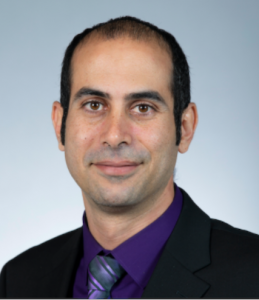In this session, we will explore cutting-edge advancements shaping the landscape of Generative AI. Beginning with the concept of Digital Twining and the role of a Digital Instructor. The session will then introduce CyGPT, a customized ChatGPT tool designed specifically for ISU courses, showcasing its potential to enhance interactive learning environments. A compelling case study will be presented, demonstrating the practical application of ChatGPT in the SE 317 course.
 Dr. Ashraf Gaffar has been working with AI for the last 25 years. His research includes creating large data corpuses (repositories) and structuring and encoding them using different formal methods including AI and non-AI techniques. He has been working with ChatGPT since its inception in 2017. He built several AI systems for multiple enterprises including Honeywell, Deutsche Bank, Mayo Clinic, and General Motors. He received multiple academic and industrial awards for his work including Superior Academic Achievement and two SAP MVP awards, and currently has 5 US patents. Dr. Gaffar is a Teaching Professor at Iowa State University and is a certified project manager (PMP) since 2008.
Dr. Ashraf Gaffar has been working with AI for the last 25 years. His research includes creating large data corpuses (repositories) and structuring and encoding them using different formal methods including AI and non-AI techniques. He has been working with ChatGPT since its inception in 2017. He built several AI systems for multiple enterprises including Honeywell, Deutsche Bank, Mayo Clinic, and General Motors. He received multiple academic and industrial awards for his work including Superior Academic Achievement and two SAP MVP awards, and currently has 5 US patents. Dr. Gaffar is a Teaching Professor at Iowa State University and is a certified project manager (PMP) since 2008.

Dr. Mohamed Selim is an Associate Teaching Professor in the Electrical and Computer Engineering Department. Known for his dedication and excellence in teaching, Dr. Selim was honored with the ISU Early Achievement in Teaching Award for his outstanding contributions in Teaching in 2021. This recognition followed his receipt of the College of Engineering’s Early Achievement in Teaching Award in 2020, further attesting to his consistent excellence in education. Beyond his teaching prowess, Dr. Selim serves as a lead co-PI for the ARA living lab, an NSF funded project.
If you need a reasonable accommodation, you may find more information on the University Human Resources Disability Accommodation page. For graduate student assistants and undergraduate students, please get in touch with Student Accessibility Services.
* This is a Hybrid Event. Please choose how you will attend from the RSVP options below.
** After you’ve RSVP’d, please take a moment to add this event to your personal calendar.



